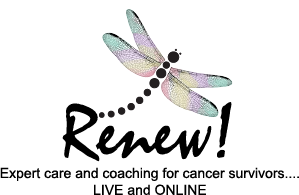Online Program for Survivors Offers Not Just Promise, but Results

What happens when cancer treatments end? Many folks describe the feeling as one of abandonment, of falling off a cliff into what’s supposed to be a new “normal.” But for many, life is anything but normal. There’s the uncertainty of what’s next, the fear of recurrence, and the very physical discomforts that can follow treatment such as neuropathy or lymphedema.
In 2005 the Institutes of Medicine (IOM) decided to address this gap that patients- turned- survivors now faced. In a report they called From Cancer Patient to Cancer Survivor: Lost in Transition, it was recommended that all cancer survivors be given a plan to help them carry on with their lives healthfully after treatment. This is a big step forward for both patients and practitioners. Still challenges remain in terms of putting these plans into action.
Two areas that are stressed as “Essential components of survivorship care” in the IOM report, are recovery support and prevention.
Recovery support includes the replenishment of nutrients and physical activity that might have gotten lost in the maze of treatment, while prevention includes addressing the physiological indicators closely linked to recurrence, such as high blood sugar and inflammation.
“Addressing indicators closely linked to recurrence” is exactly what naturopathic doctors, nutritionists and other natural healers do. And we do it using the most natural means possible, with food, nutrients, herbs and lifestyle support.
Cancer survivors usually jump at the idea of helping nature get back in charge, so their bodies are re-empowered to do what they can to stay well. Gaining and applying knowledge empowers survivors, helping to transition from passive participants in a tumor-focused process to active participants in a person-based process. This approach relieves the sense of helplessness that can often overtake the mind and enhances emotional wellness, another key aspect of the IOM’s recommendations. : Rather than looking over their shoulders for the next cancer, survivors learn to focus on what they can do to create a healthy future.
The RENEW! Online care and support for cancer survivors is the first live, online program in the U.S. to tackle both prevention and emotional wellness for cancer survivors. Starting Thursday, Oct. 6, RENEW will work with participants in a live, educational environment to help them learn and practice the essentials of self-care after cancer, an idea that has been applauded in both conventional and alternative health care circles. It will be most interesting and exciting to find out how a program like this can change lives.
While there is no good time to have cancer, this is indeed a good time to be a cancer survivor! For more information, see www.RenewSurvivorshipCare.com.


